Articles by Kathryn Freeman
81 - 90 of 176 articles
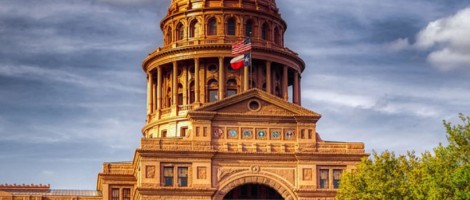
Under the Pink Dome the Days Are Few: An Update on Some CLC Legislative Priorities
by Kathryn Freeman on April 26, 2019 in CLC
The end of the legislative session is in sight and while there is still time, the days are getting longer and the chances of getting bills out of committee are getting smaller. This is an update on some of the CLC priority bills, where they are in the process and how you can help get them over the finish line.
CRIMINAL JUSTICE ...
PRO-LIFE LEGISLATION ...
PAYDAY LENDING ...
You can help.
Above all else, please pray for the CLC and our lobby team that we would be wise, gentle, reasonable, and unwavering in our work to pursue the common good while representing a biblical worldview in accordance to James 3:16-17.
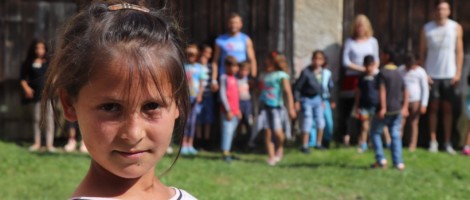
Ministry impacts lives of mothers, families in Slovakia
by Guest Author on April 25, 2019 in Hunger Offering
By Abby Hopkins
In Slovakia, the Roma are a minority known for living in poverty. Education barriers create challenges for individuals to finish school and break the cycles of poverty.
Roma Health & Hunger, a Texas Baptist Hunger Offering partner, is meeting this need by providing resources within the education system. From mothers to their children, the work of this ministry is helping Roma families succeed and thrive.
Hunger Offering funds are specifically used for higher education scholarship funds as well as for lunches and snacks for a preschool program. This ministry unites the body of Christ to meet the needs of Roma people and display the glory of God.
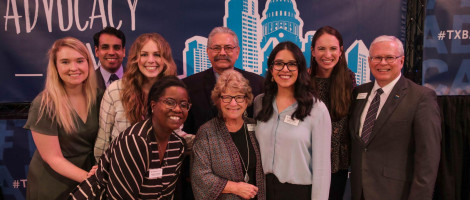
An announcement letter from Ali
by Ali Corona on April 5, 2019 in CLC
Friends,
It’s with excitement and sadness that I inform you of some news. After four years of having the true privilege of serving as the hunger and care ministries specialist at the CLC, I will be transitioning to a new position as a crisis counselor in Marble Falls.
Words do not feel adequate for how grateful I am for every person whom I’ve had the honor to know and work alongside in this ministry. Thank you doesn’t seem to suffice.
I will serve as an adult outreach counselor at Highland Lakes Family Crisis Center, close in proximity to our church, First Baptist Church of Marble Falls. I will be working with individuals dealing with trauma while pursuing my credentials as a licensed clinical social worker. I hope to gain a better understanding of trauma-informed care and learn to walk with people on their healing journeys. I covet your prayers in this new chapter of my life.
The change is very bittersweet. These past four years have changed my life. I love and believe in the Texas Baptist Hunger Offering, the CLC, and the Texas Baptist family. I hold dear so many beautiful memories across Texas and around the world. I have learned a great deal from numerous churches and ministries impacting their communities with beauty, justice, and restoration.
I can’t help but think of Paul’s words to the church of Philippi: “I give thanks to my God for every remembrance of you, always praying with joy for all of you in my every prayer, because of your partnership in the gospel from the first day until now” (Philippians 1:3-5, CSB).
Thank you, Dr. Reyes, Dr. Foster, and Dr. Hardage for giving this Tennessean a chance. Shout out to Marilyn, Kathryn, Rebecca, and everyone else who are more than coworkers, they are family.
Thank you, colleagues and friends, for your encouragement to me personally, and more importantly, your desire to pursue the call to justice, mercy, and equality.
Gratefully,
Ali
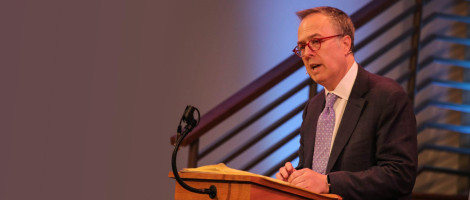
Gerson outlines a Christian approach to social engagement at CLC Advocacy Day
by Texas Baptists Communications on April 5, 2019 in News
Washington Post columnist and former George W. Bush speechwriter Michael Gerson delivered the keynote address at the Texas Baptist Christian Life Commission’s Advocacy Day March 26 at Woodlawn Baptist Church in Austin.
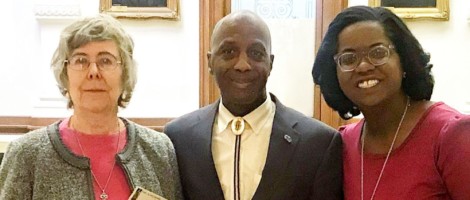
Donna Burney shows that everyone can advocate
by Kathryn Freeman on March 22, 2019 in CLC
Donna Burney is not your typical advocate, after serving as an English professor and then with Woman's Missionary Union, she retired. But, a few years ago, Donna became aware of the uncertainty facing women just released from prison.
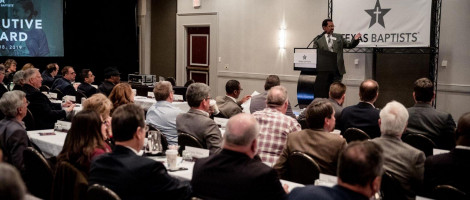
Executive board renews commitment to sexual abuse prevention training for churches
by Kalie Lowrie on February 19, 2019 in News
During the February meeting of the Executive Board, members voted to approve the allocation of $100,000 from the J.K. Wadley Endowment Fund to continue providing to churches sexual abuse prevention training and resources through a relationship with MinistrySafe. Executive Director David Hardage addressed the recent reports on sexual abuse in Southern Baptist churches.
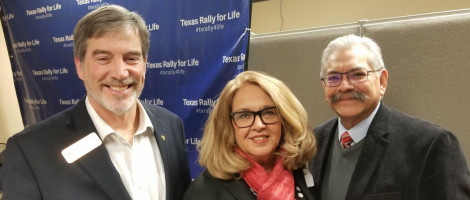
Encouraged by pro-life events in D.C. and Austin
by Gus Reyes on February 1, 2019 in CLC
Two events on two successive weekends have encouraged me. In mid-January, I witnessed busloads of people streaming into Washington, D.C., for the annual March for Life. One week later, I listened to thousands of people cheer during Austin’s Rally for Life.
Both events attracted large numbers of students and young adults. There’s an enormous concern evidenced by the thousands of students lifting up the importance and value of life.
A message can be gleaned from this -- pro-life supporters are not going away. And more and more pro-lifers understand that it is not just about abortion; we want to promote the value of human life from conception to natural death.
Children before birth are among the most vulnerable among us, but many women who are carrying these children are in vulnerable positions, as well. We need broad cultural understanding, support systems, and legal frameworks within which we promote the health of all children and their mothers.
In speaking at the Austin event, I noted that Texas Baptists believe every person is created in the image of God and, therefore, deserves our respect and honor from conception.
After reading Psalms 139:13-16 in both English and Spanish, I called for all Texans to work together in . . .
CLC announces public policy priorities
by Texas Baptists Communications on January 30, 2019 in Press Releases
The Texas Baptist Christian Life Commission is pleased to announce their public policy priorities for the 86th Texas Legislative Session.
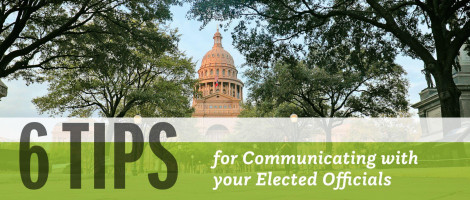
6 Tips for Communicating with Your Elected Officials
by Kathryn Freeman on January 29, 2019 in Great Commandment
Kathryn Freeman, director of Public Policy, shares how you can communicate with your elected officials.
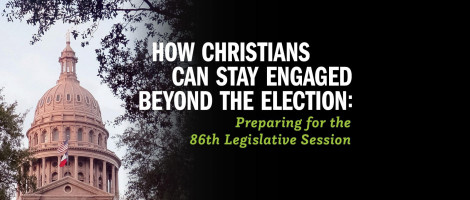
How Christians Can Stay Engaged Beyond the Election: Preparing for the 86th Legislative Session
by Kathryn Freeman on January 29, 2019 in Great Commandment
Kathryn Freeman, director of Public Policy, shares insights on the 86th Texas Legislative Session and how you can communicate with your elected officials.